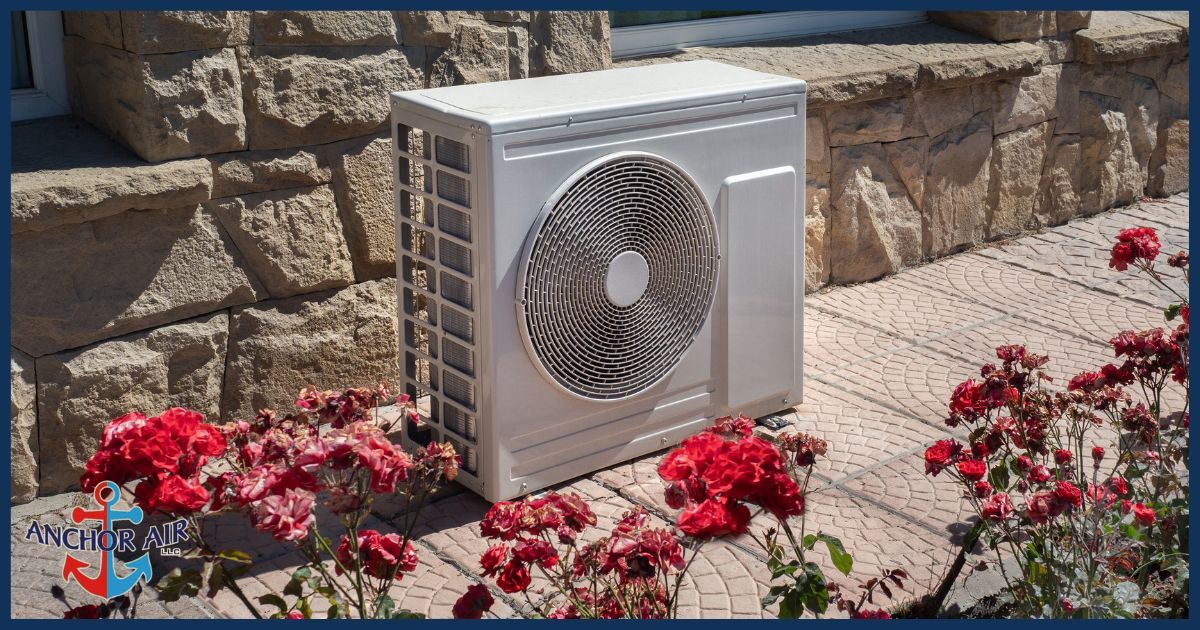Heat Pumps 101

No matter where you live, a heat pump can be a beneficial heating and cooling option for your home. The misleading name leaves many believing the unit is only useful in cold temperatures. However, heat pumps simply “pump heat” from one location to another. Heat pumps are especially efficient in temperate climates, such as Foley, where temperatures rarely drop below freezing. In this blog, we will discuss everything you need to know about heat pumps in Foley and the benefits they can provide for your home.
How Do Heat Pumps Work?
Heat pumps are able to keep your home comfortable in all seasons due to their heating and cooling settings. In the winter, heat pumps collect heat energy from the outside air, ground, or water and relocate it inside your home. In the warmer months, heat pumps transfer the warm air in your home to an outside source. This process uses significantly less energy than most other heating options, which helps lower bills and energy usage.
Types Of Heat Pumps
There are three main types of heat pumps: air source, water source, and ground source. All types can effectively provide comfort to your home using a similar method, but draw heat energy from different places.
Air Source Heat Pumps
Air source heat pumps draw heat energy from the outside air, even when it is cold. This type of heat pump is the most common installed due to the easy installation process and energy savings it can provide. According to the U.S. Department of Energy, air source heat pumps can reduce electricity use for heating by 50% when compared to alternative heating options.
Water Source Heat Pumps
Water source heat pumps draw heat from nearby water, such as a lake or pond. The heating unit operates by rejecting or absorbing heat from a water-pipe system or water loop. This type of heat pump can only be utilized if water is readily available surrounding your home. Water source heat pumps can be more efficient when compared to air source, because heat transfers best in water.
Ground Source Heat Pumps
Ground source heat pumps draw heat from inside the ground using a ground loop buried outside your home. Both ground and water source heat pumps cost more to install, but can save more energy down the road. Air source heat pumps can pull heat energy from cold air, but use more electricity to do so. Heat energy is mostly available at all times in the ground and water sources.
Although the types of heat pumps vary, each of them use similar components to keep your home at a comfortable temperature. Heat pumps are made up of six main components:
- Outdoor Unit: Located outside your home or underground and contains a coil and fan. Depending on the mode, the coil operates as a condenser to cool or an evaporator to heat. The fan blows heat energy collected over the coil.
- Indoor Unit: Located inside your home and commonly referred to as an air handler unit. Similar to the outdoor unit, the air handler contains a coil and a fan. The fan is responsible for moving air across the coil and through the air ducts.
- Refrigerant: This is the fluid responsible for absorbing or rejecting heat energy.
- Compressor: The compressor pressurizes the refrigerant and relocates it throughout the system.
- Reversing Valve: The reversing valve allows you to switch from heating to cooling mode, which simply reverses the flow of refrigerant.
- Expansion Valve: This component removes pressure and regulates the refrigerant.
How Are Heat Pumps Beneficial?
Heat pumps can be extremely beneficial to any home in most climates, because they allow homeowners to save money, time, and the environment. Below we listed 5 of the many advantages to heat pumps in Fairhope and surrounding areas.
- Environmentally Friendly
- Two-In-One System
- Energy Efficient
- Improve Indoor Air Quality
- Quiet Operation
Environmentally Friendly
Due to the process of transferring heat rather than creating it, heat pumps are very beneficial to the environment. The heating device does not burn fossil fuels to operate, which reduces harmful greenhouse gasses released into the environment. Choosing to install a heat pump in Foley helps reduce your carbon footprint and fight against climate change!
Two-In-One System
Heat pumps provide both heating and cooling, which is helpful for weather fluctuations in each season. Winter temperatures can often surprise us with sunny and 75 degrees, and heat pumps are flexible and ready to cool your home with just the flip of a switch. Additionally, heat pumps cut down on maintenance due to the system utilizing the same components.
Energy Efficient
Rather than using energy to generate heat, heat pumps simply move heat from one location to another. This process cuts energy usage nearly in half when compared to electric resistance heating such as furnaces. The less energy used, the more you will save on utility bills!
Improve Indoor Air Quality
Heat pumps do not release harmful fumes such as carbon monoxide into the air, which helps improve air quality and safety. Additionally, heat pumps remove humidity and filter pollutants to purify air before it enters your home.
Quiet Operation
Heat pumps are specifically designed to produce minimal noise when operating. While air source heat pumps operate quietly, ground and water source heat pumps are almost silent due to their outdoor unit being buried underground or submerged in water.
If you are looking to install or replace your heating unit in Foley, we promise you will not be disappointed with a heat pump! One of our expert technicians can help identify which heat pump is best for your home and make the installation process a breeze. Your comfort is our top priority, give us a call today!
